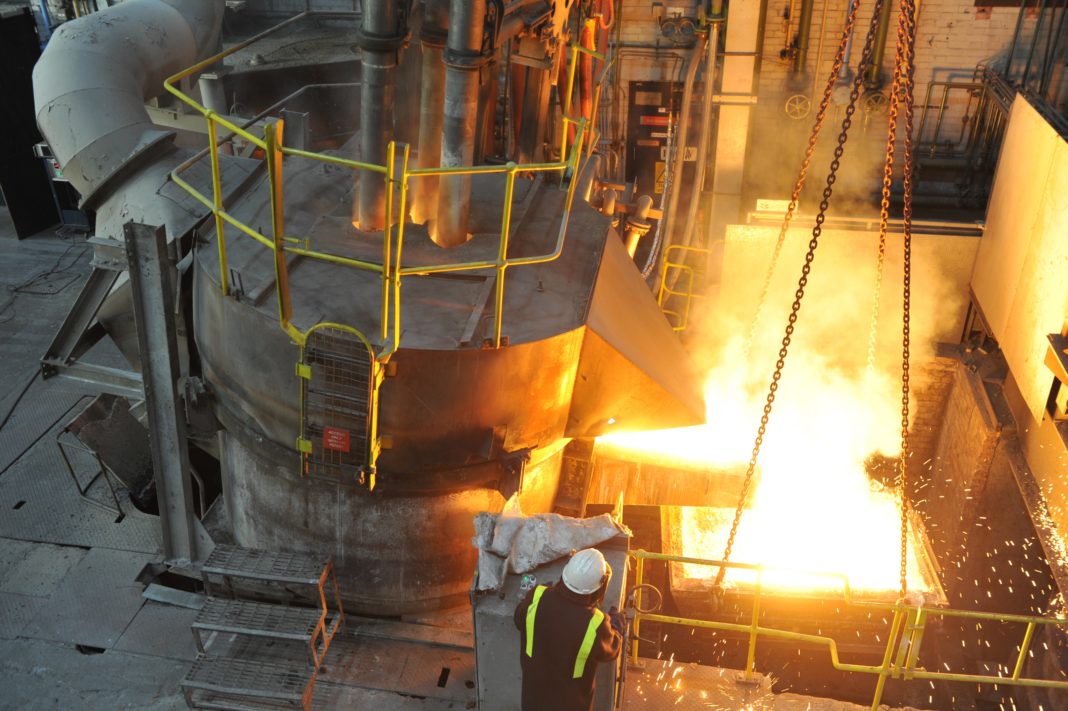Cement 2 Zero, a demonstrator project led by Middlesbrough-based Materials Processing Institute that is trialling the world’s first industrial scale zero-emissions cement, has officially launched following the first in a series of successful pilot-scale melts.
The project, which secured £6.5million of Government funding from UK Research and Innovation as part of the Transforming Foundation Industries Challenge, aims to further advance the construction, cement and steel sectors’ decarbonisation transformation to net zero industries.
Supported by the University of Cambridge (UoC), with collaboration from key supply chain players, it is the first collaborative trial of its kind to address the decarbonisation of the global construction industry.
The project investigates both the technical and commercial aspects of upscaling Cambridge Electric Cement (CEC) production to produce 20 tonnes of the world’s first zero emissions cement.
The two-year trial will test each stage of the production process and brings together the expertise of the Institute, the UoC and key partners – Atkins, Balfour Beatty, CELSA, Day Aggregates and Tarmac – before using the innovative product in a live UK construction project.
The first phase of trial melts has been undertaken by the Materials Processing Institute using a 250kg induction furnace on its Teesside campus before it is scaled up to 6T in an Electric Arc Furnace (EAF). Once substantially trialled, developed and de-risked, industrial scale melts will follow in CELSA’s EAF in Cardiff
Chris McDonald, Chief Executive Officer of the Institute, said: “Cement 2 Zero has the potential to make a significant contribution to achieving a zero-carbon society, secure and increase jobs in the UK cement and steel sectors and challenge conventional production processes, creating high-value materials from demolition waste.”
Dr Philippa Horton of UoC, who created the project consortium, said: “It could be a pivotal point in the journey to a zero-emissions society. The Cement 2 Zero project is an invaluable opportunity to collaborate across the entire construction supply chain, to expand CEC from the laboratory to its first commercial application.”
This major break-through is a result of Dr Cyrille Dunant and his UoC research team which invented a new process which combines two critical industries and construction materials, cement and steel.
Known as CEC, he and fellow researchers Dr Horton and Professor Julian Allwood, invented a process that converts construction and demolition waste to cement over molten steel, using an EAF, which is itself used to recycle scrap steel.
The Cement 2 Zero project aims to demonstrate that concrete can be recycled to create a Slag Forming addition which could, when cooled rapidly, replace Portland cement.
It was found that the chemical composition of used cement is virtually identical to that of the lime-flux used in the conventional EAF steel recycling process and Cement 2 Zero will use recycled cement as the flux in the electric steel recycling process, the by-product of which, when cooled and ground, produces Portland cement clinker, which is then blended to make ‘zero-emissions’ cement.
Professor Paul Monks, Chief Scientific Officer for the Department for Business, Energy and Industrial Strategy, said: “The Cement 2 Zero project shows how the UK research base and business are collaborating to tackle the most important challenges we face in building a sustainable future.”









